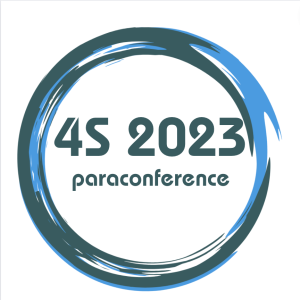4S 2023 Para-conference X Environmental inJustice: Building a Global Record
Relating-with-Hawai’i under the duress of the violent histories of Colonialism, Militarism and Environmental injustice (CMEiJ) in Hawai’i is indeed, parasitical.

Relating-with-Hawai’i under the duress of the violent histories of Colonialism, Militarism and Environmental injustice (CMEiJ) in Hawai’i is indeed, parasitical.

Renwu is a part of Kaohsiung City, Taiwan, where there are large factories making chemical products. Renwu Elementary School is very close to these factories, just 500 meters away. The school has been actively engaged in discussions about how to improve the environment and promote prosperity for everyone. Approximately 80% of the students at the school have asthma, a respiratory condition. Recognizing the challenges of improving the environment around the school, some students and teachers decided to explore ways to improve the air quality within the school. The students did a few things: first, they used low-cost sensors and single-board computers to make regular air purifiers work better. When levels for air pollution (PM 10 and PM 2.5) are high, these gadgets turn on the air purifiers in many classrooms. This air purifier project is one of three ongoing educational programs aimed at educating students about air pollution and its potential health impacts. In art class, students use paper mache to design their own air purifiers to save money. Using magnifying glasses for tablets and smartphones, they explore which materials work best for air filtration. In parallel, they began collecting air pollution data over time using a digital system developed by the students themselves. They also used hand-held monitors outside to measure pollution levels around a major chemical factory operated by Formosa Plastics, a large petrochemical company. It is worth noting that Formosa Plastics is currently planning to expand its production facilities in Texas and Louisiana, which would also affect air quality in nearby schools. The monitoring and data collection by the Renwu students could inspire others in different places to do something similar about air pollution in their own communities.
Schütz, Tim, Jia-An Lin & Yu-Hsin Hsu. 2023. "DIY Air Monitoring at Renwu Elementary School in Kaohsiung, Taiwan." In 4S Paraconference X EiJ: Building a Global Record, curated by Misria Shaik Ali, Kim Fortun, Phillip Baum and Prerna Srigyan. Annual Meeting of the Society of Social Studies of Science. Honolulu, Hawai'i, Nov 8-11.
Residents of Love Canal, in the Niagara Falls region of Western New York, were alerted to signs of a toxic waste crisis involving the lethal chemical byproduct dioxin in the late 1970s. Residents learned about the crisis through news media, community activism and research, and their own visceral experiences – they could smell noxious fumes, noticed black sludge seeping into their basements, and saw children falling ill. Activists and academics carried out community-based research to survey the area in an effort to understand the extent of the hazard and its effects – data that they saw as missing, at the time – in turn generating evidence of changes in health and pregnancy abnormalities. In doing so, members of the community aimed to hold corporate and government stakeholders accountable to evacuate residents, organize remediation, and strengthen scientific studies and interventions to care for residents. Regional health authorities, however, dismissed community-based studies as “useless housewife data”. Activists responded by scrutinizing government and scientific studies, critiquing a lack of ecological validity and trustworthiness. Residents and community groups’ advocacy contributed to their exercise of epistemic authority, the creation of archival records and initiatives tracking the crisis over the last five decades, and wider public attention to Love Canal and other sites like it.
Image Description and Source: "Map showing distribution of symptoms believed to be caused by Love Canal pollutants," Digital Collections - University at Buffalo Libraries, May 1982.
Shankar, Saguna. 2023. "What's the Use of Data? Epistemic Authority and Environmental Injustice at Love Canal." In 4S Paraconference X EiJ: Building a Global Record, curated by Misria Shaik Ali. Kim Fortun, Phillio Baum and Prerna Srigyvan. Annual Meeting of the Society for Social Studies of Science. Honolulu, Hawaiti, Nov 8-11.